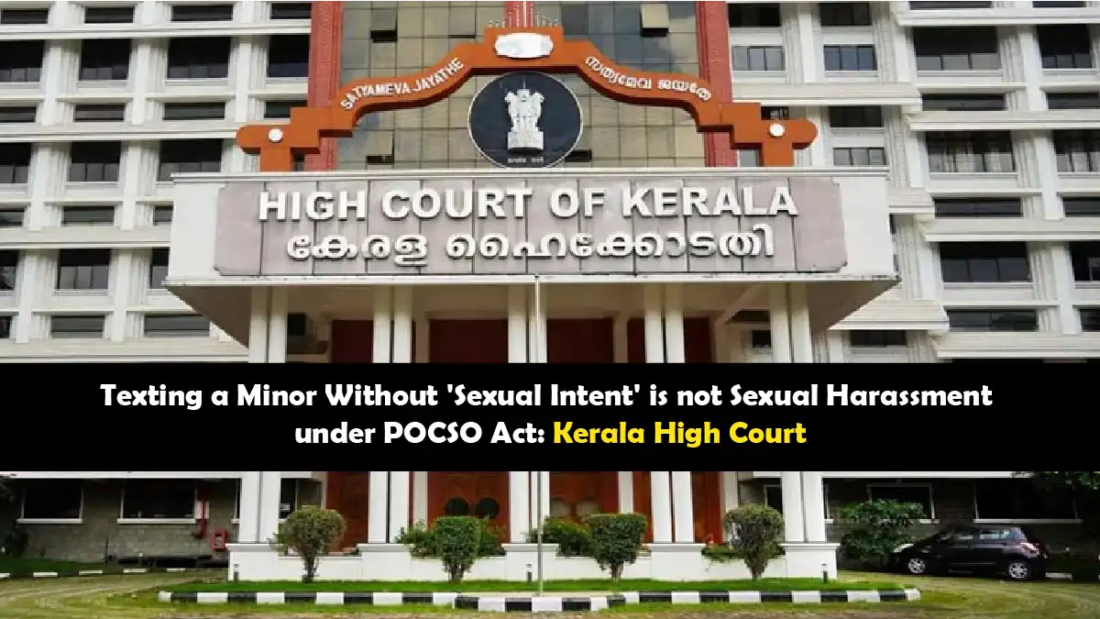Facts of the Case
The case arose from a Criminal Miscellaneous Case filed under Section 482 of the Code of Criminal Procedure to quash the FIR and final report concerning the petitioner, a 24-year-old man accused of disturbing a 17-year-old girl through messages and phone calls. The charges against him included stalking under Section 354D of the Indian Penal Code (IPC) and sexual harassment under Section 11(iv) and Section 12 of the Protection of Children from Sexual Offences Act (POCSO Act). The petitioner sought to quash the FIR and final report, asserting that the allegations were unfounded and had been settled between the parties.
Contention of the Parties
Petitioner’s Argument:
The petitioner claimed that the allegations were based solely on sending messages and making calls, which did not amount to an offence under the POCSO Act or IPC. He emphasized that:
- The specific messages were not disclosed in the prosecution records.
- The statements made did not substantiate any allegations of sexual intent.
- An affidavit from the victim indicated that the matter had been settled, and no further action was necessary.
Respondent’s Argument:
The Public Prosecutor opposed the petition, arguing that:
- The POCSO Act does not permit quashing of proceedings based solely on a settlement between the parties, especially in cases involving minors.
- The gravity of the allegations warranted a thorough examination, irrespective of any settlement.
- The nature of the alleged communications needed to be evaluated to determine if they constituted sexual harassment or stalking.
Court’s Observations
Justice A. Badharudeen of Kerala HC observed that:
The allegations against the petitioner were confined to sending messages and making calls to the victim, causing her disturbance. However, the prosecution failed to produce any evidence, such as the content of the messages, to substantiate the claims of sexual intent necessary to establish charges under the POCSO Act and IPC.
Under Section 11(iv) of the POCSO Act, mere sending of messages or calls does not amount to sexual harassment unless those communications clearly indicate a sexual intent. The absence of the actual messages or any indication of sexual intent in the communications made it unjustifiable to hold the petitioner criminally liable. The prosecution did not establish a prima facie case against the petitioner under the relevant sections of law.
Court’s Decision
The Kerala High Court quashed the FIR, final report, and all further proceedings against the petitioner. The court concluded that the prosecution had not made out a prima facie case against the petitioner, given the lack of evidence to prove any ongoing or constant contact with sexual intent.
The court emphasized that it is essential to have concrete evidence of wrongdoing, particularly in cases involving serious allegations of sexual harassment and stalking.
 Cart is empty
Cart is empty 

